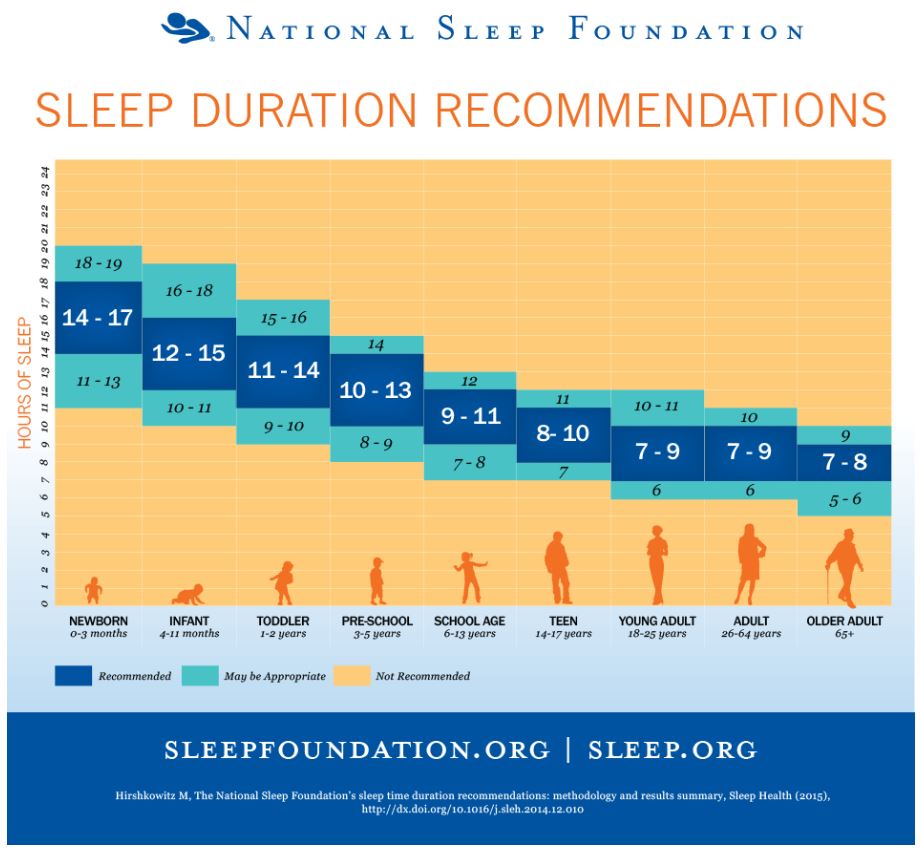To ensure you’re receiving the most up-to-date and accurate information, please choose the correct agency from the homepage. The DHEC website is no longer being updated and will be permanently unavailable Dec. 31, 2024.
It's Sleep Awareness Week: Be Sure You Get Your Zs
 Sleep is a vital indicator of overall health and well-being. We spend up to one-third of our lives asleep, and the overall state of our "sleep health" remains an essential question throughout our lifespan.
Sleep is a vital indicator of overall health and well-being. We spend up to one-third of our lives asleep, and the overall state of our "sleep health" remains an essential question throughout our lifespan.
Join the National Sleep Foundation in celebrating its annual "Sleep Awareness Week," March 11 to 17, 2018. This year's theme, "Begin with Sleep, highlights the importance of good sleep health for individuals to best achieve their personal, family, and professional goals.
A good night's sleep can depend on:
- Comfort you feel in your bedroom environment
- Visual conditions in your bedroom environment
- Noises in your bedroom environment
- What you breathe while you sleep
- What you eat and drink in the hours before bed
How much sleep do you need to be your best self?
Most of us know that getting a good night's sleep is important, but too few of us actually make those eight or so hours between the sheets a priority. For many of us with sleep debt, we've forgotten what "being really, truly rested" feels like.
To further complicate matters, stimulants like coffee and energy drinks, alarm clocks, and external lights-including those from electronic devices-interfere with our "circadian rhythm" or natural sleep/wake cycle.
Sleep needs vary across ages and are especially impacted by lifestyle and health. To determine how much sleep you need, it's important to assess not only where you fall on the "sleep needs spectrum," but also to examine what lifestyle factors are affecting the quality and quantity of your sleep such as work schedules and stress.
Check out the Bedtime Calculator, which can help you plan your sleep.

Make Sleep a Priority
To begin a new path towards healthier sleep and a healthier lifestyle, begin by assessing your own individual needs and habits. See how you respond to different amounts of sleep.
Pay careful attention to your mood, energy and health after a poor night's sleep versus a good one. Ask yourself, "How often do I get a good night's sleep?" Like good diet and exercise, sleep is a critical component to overall health.
To pave the way for better sleep, follow these simple yet effective healthy sleep tips, including:
- Stick to a sleep schedule, even on weekends.
- Practice a relaxing bedtime ritual.
- Exercise daily.
- Evaluate your bedroom to ensure ideal temperature, sound and light.
- Sleep on a comfortable mattress and pillows.
- Beware of hidden sleep stealers, like alcohol and caffeine.
- Turn off electronics before bed.
If you or a family member are experiencing symptoms such as sleepiness during the day or when you expect to be awake and alert, snoring, leg cramps or tingling, gasping or difficulty breathing during sleep, prolonged insomnia or another symptom that is preventing you from sleeping well, you should consult your primary care physician or find a sleep professional to determine the underlying cause.
You may also try using the National Sleep Foundation Sleep Diary to track your sleep habits over a one- or two-week period and bring the results to your physician.
Most importantly, make sleep a priority. You must schedule sleep like any other daily activity, so put it on your "to-do list" and cross it off every night. But don't make it the thing you do only after everything else is done; stop doing other things so you get the sleep you need.